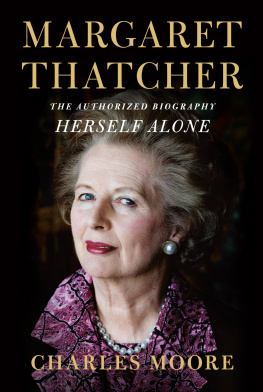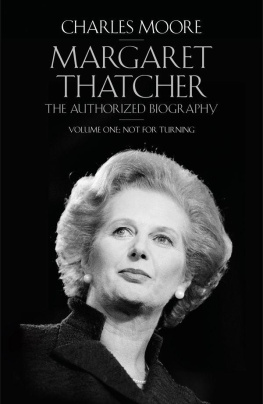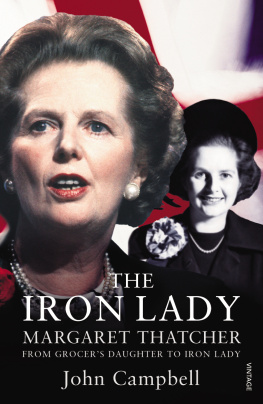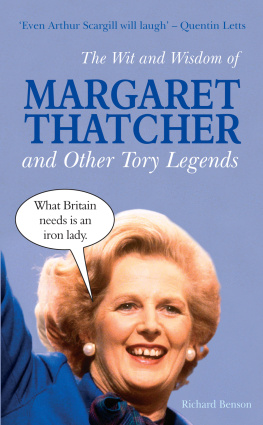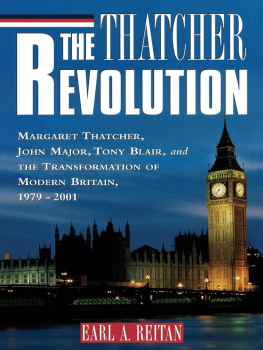Charles Moore - Margaret Thatcher: Everything She Wants
Here you can read online Charles Moore - Margaret Thatcher: Everything She Wants full text of the book (entire story) in english for free. Download pdf and epub, get meaning, cover and reviews about this ebook. year: 2015, publisher: Knopf, genre: Non-fiction. Description of the work, (preface) as well as reviews are available. Best literature library LitArk.com created for fans of good reading and offers a wide selection of genres:
Romance novel
Science fiction
Adventure
Detective
Science
History
Home and family
Prose
Art
Politics
Computer
Non-fiction
Religion
Business
Children
Humor
Choose a favorite category and find really read worthwhile books. Enjoy immersion in the world of imagination, feel the emotions of the characters or learn something new for yourself, make an fascinating discovery.

- Book:Margaret Thatcher: Everything She Wants
- Author:
- Publisher:Knopf
- Genre:
- Year:2015
- Rating:5 / 5
- Favourites:Add to favourites
- Your mark:
- 100
- 1
- 2
- 3
- 4
- 5
Margaret Thatcher: Everything She Wants: summary, description and annotation
We offer to read an annotation, description, summary or preface (depends on what the author of the book "Margaret Thatcher: Everything She Wants" wrote himself). If you haven't found the necessary information about the book — write in the comments, we will try to find it.
Margaret Thatcher: Everything She Wants — read online for free the complete book (whole text) full work
Below is the text of the book, divided by pages. System saving the place of the last page read, allows you to conveniently read the book "Margaret Thatcher: Everything She Wants" online for free, without having to search again every time where you left off. Put a bookmark, and you can go to the page where you finished reading at any time.
Font size:
Interval:
Bookmark:
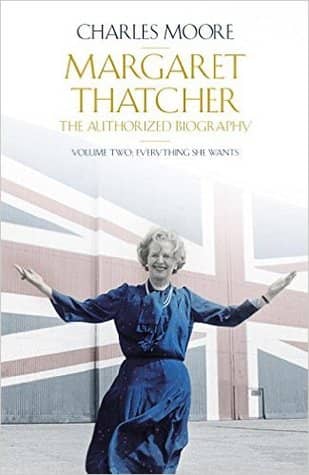
ALSO BY CHARLES MOORE
Margaret Thatcher: From Grantham to the Falklands
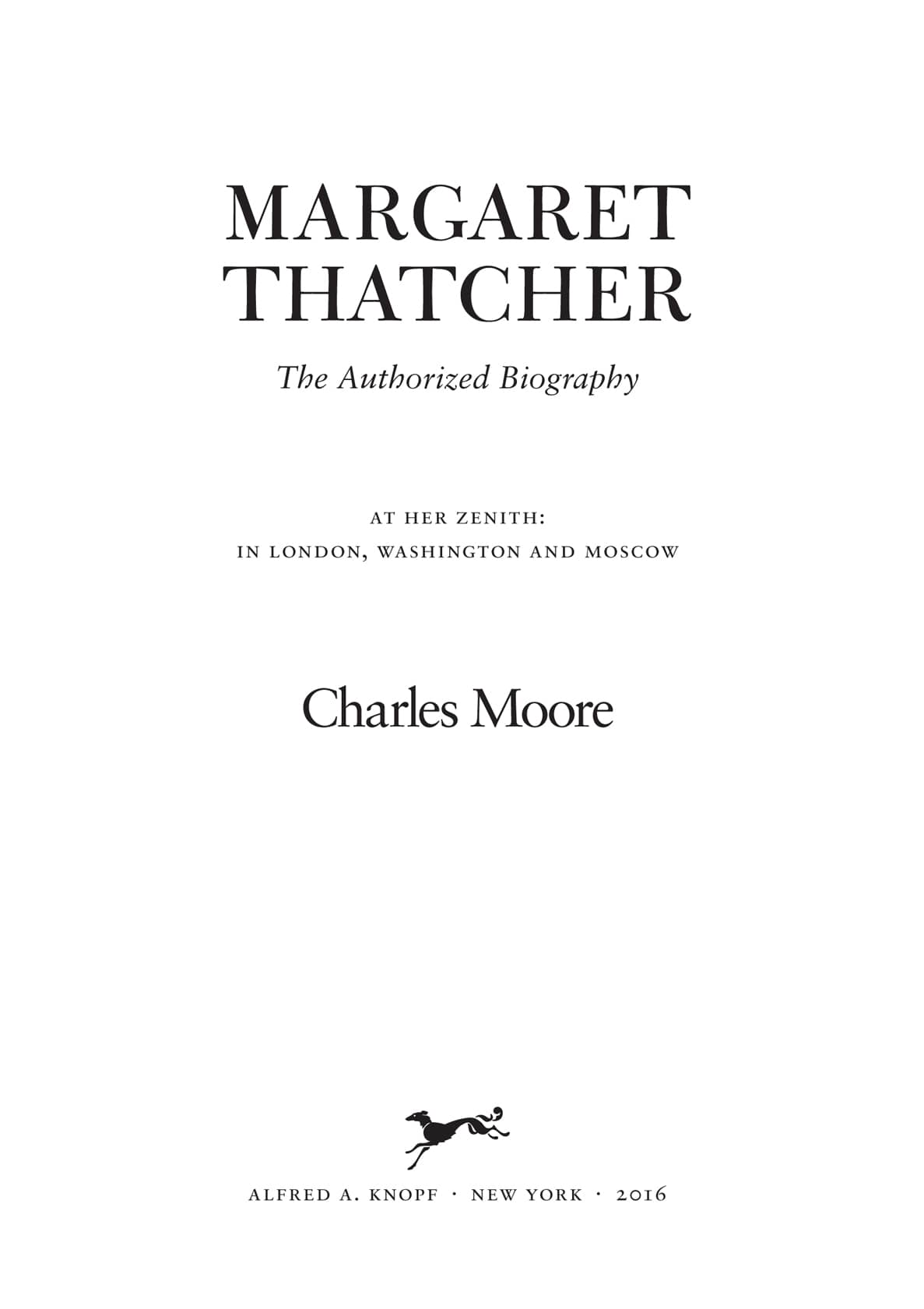

THIS IS A BORZOI BOOK
PUBLISHED BY ALFRED A. KNOPF
Copyright 2016 by Charles Moore
All rights reserved. Published in the United States by Alfred A. Knopf, a division of Penguin Random House LLC, New York. Simultaneously published in hardcover in Great Britain by Allen Lane, an imprint of Penguin Random House Ltd., London.
www.aaknopf.com
Knopf, Borzoi Books, and the colophon are registered trademarks of Penguin Random House LLC.
Library of Congress Control Number: 2015954069
ISBN 9780307958969 (hardcover)
ISBN 9780307958976 (eBook)
Grateful acknowledgment is made to Penguin Books Ltd. for permission to reprint the poem Mrs Thatcher from The Growing Pains of Adrian Mole by Sue Townsend, copyright 1984 by Sue Townsend. Reprinted by permission of Penguin Books Ltd., London.
Cover photograph: Margaret Thatcher at Isle of Wight, 1983 PA Images
Cover design by Stephanie Ross
v4.1
a
To Kate, Will and Hannah,
who are too young to have seen what happened
and in memory of
W. F. Deedes, who saw it all
Foundations
Shocks
Recovery
No coward soul is mine,
No trembler in the worlds storm-troubled sphere
Emily Bront
The life of Margaret Thatcher constantly confounds the philosophers. I noted at the beginning of the first volume of this biography how she had wrong-footed Socrates. His dictum that the unexamined life is not worth living cannot be applied to hers. She also disproved Francis Bacon, who famously said that All rising to great place is by a winding stair. Her climb began lower and therefore reached further than those of her predecessors, but she moved upwards as straight as she could. And although she could certainly be more cunning in tight situations than she would ever admit, her method was rarely circuitous. The man rising up the winding stair cannot see where he is going. The woman fighting to reach the summit and stay there had the end always in view. She was impelled upwards by a combination of intense personal ambition and her fervent belief in the capacities of a free country, particularly the capacities of her own country. She had enough time at the top to try to unlock those capacities and realize much of that vision.
Mrs Thatcher served as prime minister of the United Kingdom for eleven and a half continuous years a record unique in the era of universal suffrage. This book covers the zenith of her power, from the aftermath of the Falklands War in 1982 and her subsequent (and consequent) victory in the general election of 1983 to her third election victory in 1987. It therefore contrasts strongly with the first volume of this authorized biography (Margaret Thatcher: From Grantham to the Falklands), which was published shortly after her death in 2013. That told the story of the lonely rise of the Midlands grocers daughter to become the first woman leader of the Conservative Party and then, four years later, Britains first woman prime minister. It showed her always battling against the odds, wrestling with the huge difficulties that were thrown in the way by many of the male sex (and by some of her own), by political opponents and by the economic problems that beset her country. This book shows her on top more dominant, perhaps, than any peacetime predecessor, and more famous on the world stage than any British prime minister except for Sir Winston Churchill.
So one might have thought that the second part of the story would be less dramatic than the first a triumphal progress along the red carpet of global renown instead of the earlier, terrifying precariousness. But to think this is to impose upon past events an order which they did not, to their participants, possess. No one knew at the time that Mrs Thatcher would win all three general elections which she would contest as leader. Very few in the West, in 1983, had heard of Mikhail Gorbachev, or imagined that the Iron Lady, of all people, would be the first to try to bring the Soviet Union in from the cold. No one, in March 1984, knew that the miners strike, which began in that month, would last for a year and would end in the absolute defeat of organized trade union power in British politics. And no one, at the beginning of December 1984, would have dreamed that the affairs of a small Somerset helicopter company would, within a few weeks, taint her reputation and force her to think that she might have to resign. It was not in the character of Mrs Thatcher herself, or in the nature of her times, that things would jog along peacefully. Indeed, in this period at Brighton in 1984 she nearly lost her life to a terrorist attack by the IRA.
Only by writing this book did I come to understand just how insecure Mrs Thatchers position often felt in these years not least to her. Within months of her landslide win in 1983, she became aware that many of her senior colleagues did not want her to fight the next general election as leader. At several moments in the miners strike, it seemed quite possible that she would lose. On issues like the sale of British Leyland, South African sanctions or Britains membership of the Exchange Rate Mechanism (ERM) of the European Monetary System, she found herself dangerously isolated from Cabinet colleagues. Despite overwhelming polling evidence to the contrary, she was intermittently convinced that she would lose the 1987 election. Even her close friendship with President Ronald Reagan one of the most important themes of this book was troubled by bad moments. After the US invasion of Grenada, she felt her trust in him had been betrayed. After Reagans attempt at the Reykjavik summit with Gorbachev in 1986 to bargain away all nuclear weapons, she briefly believed that the cause of the free world might be lost.
This was the era when Mrs Thatcher scored some of her greatest successes her visit to Moscow in 1987, large-scale privatization, the settlement of the five-year row about Britains rebate from the European Community, the reduction of inflation and the return of prosperity, and the defeat of the miners extremist leader, Arthur Scargill, not to mention two overwhelming election victories. But it was also the period in which she presided over the invention of the poll tax, incurred the anxiety of the Queen about South Africa and the Commonwealth and developed what would later become fatally bad relations with her most senior colleagues. In these years, she revealed her full qualities as a leader both her astonishing abilities and her sometimes equally astonishing flaws. The week in December 1984 which began with her meeting Gorbachev for the first time, continued with her signature of the Anglo-Hong Kong Agreement in Peking and ended with President Reagan at Camp David is one of the most remarkable in modern political history. The day in June 1987 when she lost all sense of proportion about the election campaign she was fighting is one of the most embarrassing. Mrs Thatchers appetite for achievement and change and the degree to which she was the commanding personality of the era is beyond question; but, hard as she fought for everything she wanted, this was not always what she got. In the process, many of her loyal but exhausted staff often asked themselves, in the words of a pop song at the time, Somebody tell me, wont you tell me / Why I work so hard for you? Their answer was that she made everything seem to matter: their boss made a difference, and passionately wished to do so. Whatever her critics said, she always cared.
Font size:
Interval:
Bookmark:
Similar books «Margaret Thatcher: Everything She Wants»
Look at similar books to Margaret Thatcher: Everything She Wants. We have selected literature similar in name and meaning in the hope of providing readers with more options to find new, interesting, not yet read works.
Discussion, reviews of the book Margaret Thatcher: Everything She Wants and just readers' own opinions. Leave your comments, write what you think about the work, its meaning or the main characters. Specify what exactly you liked and what you didn't like, and why you think so.

